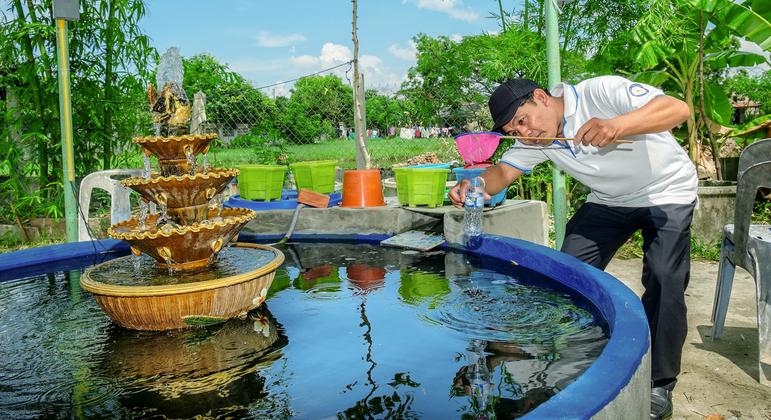In its call-to-action, the World Health Organization (WHO) issued a shocking report on Monday, noting that 99 per cent of people breathe unhealthy air – mainly resulting from the burning of fossil fuels.
“The climate crisis is a health crisis: The same unsustainable choices that are killing our planet are killing people,” said WHO Director-General Tedros Adhanom Ghebreyesus.
Health and social crises
The UN health agency warned that the steadily heating world is seeing mosquito-borne diseases spreading farther and faster, than ever before.
And extreme weather events, biodiversity loss, land degradation and water scarcity, are displacing people and affecting health, while pollution and plastics found at the bottom of the world’s deepest oceans and highest mountains, are increasingly making their way into food chains and blood streams.
Moreover, systems that produce highly processed, unhealthy foods and beverages, are driving a wave of obesity, increasing cancer and heart disease while generating up to a third of global greenhouse gas emissions.
These health and social crises are compromising people’s ability to take control over their health and lives, according to WHO.
The COVID factor
The COVID-19 pandemic has highlighted fault lines of inequity across the world, underlining the urgency of creating sustainable and healthy societies which do not breach ecological limits.
We need to ensure that all people have access to lifesaving and life-enhancing tools, systems, policies and environments, said the agency.
WHO’s Manifesto for a healthy and green recovery from the pandemic prescribes protecting and preserving nature as the primary source of human health.
It advocates for investing in essential services – from water and sanitation to clean energy in healthcare facilities – ensuring a quick and healthy energy transition; promoting healthy and sustainable food systems; building healthy and liveable cities; and stopping taxpayers’ money from funding pollution.
And the Geneva Charter for well-being, highlights what global commitments are needed to achieve equitable health and social outcomes now and for future generations, without destroying the health of our planet.
Sustainable living
At a time of heightened conflict and fragility, WHO is marking its founding day by launching the Our Planet, Our Health campaign, which re-imagines and re-prioritizes resources to create healthier societies.
“We need transformative solutions to wean the world off its addiction to fossil fuels, to reimagine economies and societies focused on well-being, and to safeguard the health of the planet on which human health depends,” Tedros underscored.
Through its World Health Day campaign, WHO is calling on governments, organizations, corporations, and citizens to share actions they are taking to protect the planet and human health.




